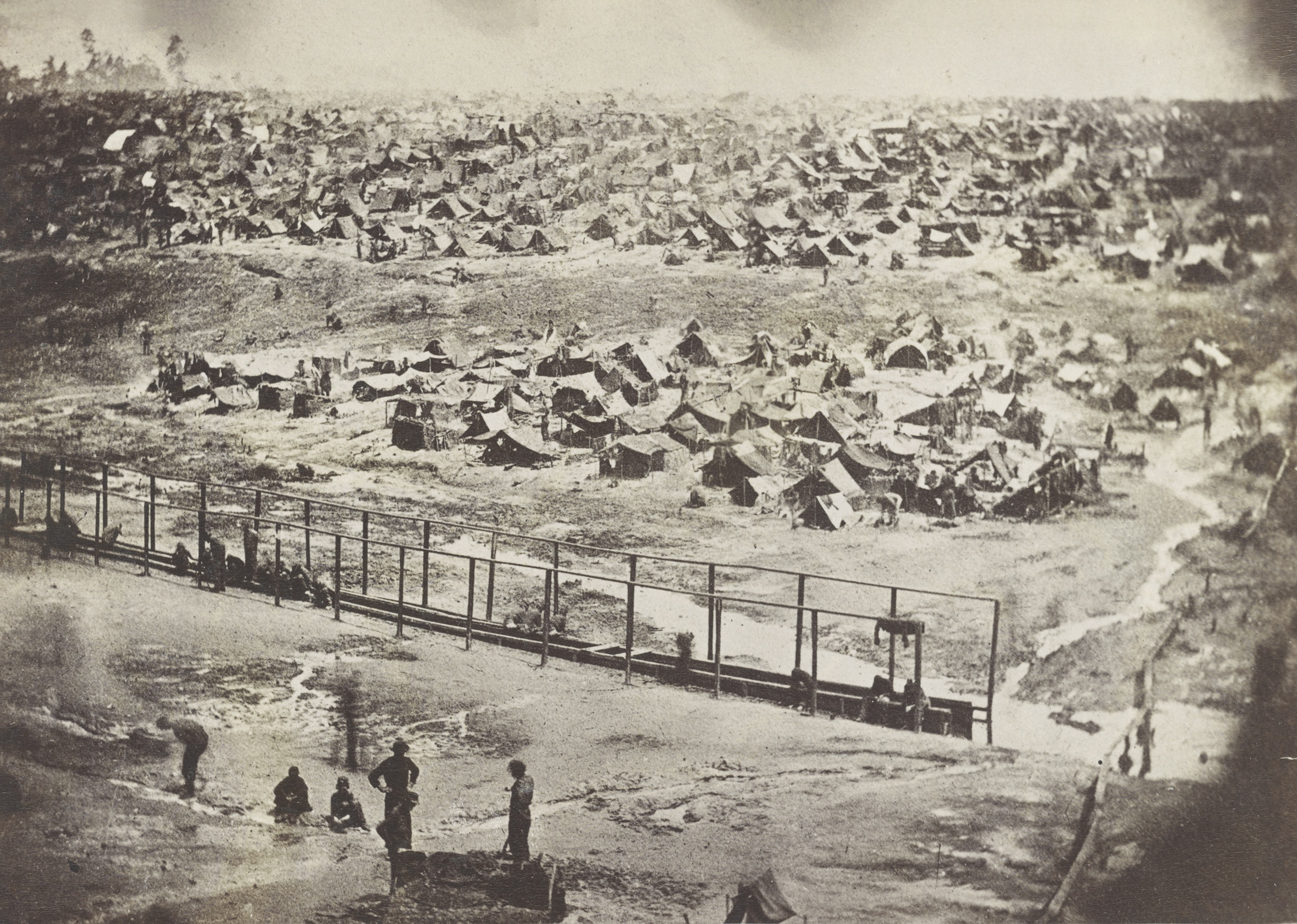Henry J. Winser was born in Bermuda in 1833, where his father served as an officer in the Royal Navy. After coming to New York in 1851, he found work in the printing industry and in time joined the staff of the New York Times, first as a proofreader and then as a reporter. With the outbreak of the Civil War, Winser became a first lieutenant in the 1st Regiment, New York Fire Zouaves, and the military secretary to its commander, Colonel Elmer E. Ellsworth, who would become the first Union officer to die in the war when he was killed as he removed a Confederate flag from the roof of the Marshall House inn in Alexandria, Virginia. Winser then returned to the Times as a war correspondent, writing the first description of the Battle of New Orleans to be published by a northern newspaper and going on to cover Major General William Tecumseh Sherman’s Atlanta Campaign. After the war Winser worked as an editor for the Times in New York.
In 1869 Winser embarked on a new career as a diplomat when he was appointed to be the U.S. consul at Sonneberg, Germany. He returned to the United States in 1882 to become the chief of the Northern Pacific Railway Company’s bureau of information, but he later returned to journalism, first as an editor at the New York Commercial Advertiser and later as the managing editor of the Newark Advertiser in New Jersey. He died in Newark in 1896.
Winser’s account of a prisoner exchange near Savannah in 1864, which filled the entire front page of an eight-page edition of the New York Times, trained a powerful spotlight on the horrific conditions at Andersonville, the Confederate military prison in Georgia. It contained not only some three dozen firsthand reports of the privations there from surgeons at the prison but also a transcript of the daily death counts from July 23 to September 5, 1864. While the account was followed only by Winser’s initials, the Times, in its lead editorial that day, gave credit to “our special correspondent, Mr. H. J. Winser,” noting that “out of their own mouths the rebels are convicted of barbarities to helpless captives that would make the blood of a cannibal run cold.” Winser’s detailed story—reprinted here except for the excerpts from official reports included in his dispatch—undoubtedly helped cement Andersonville’s place in history as the most infamous Confederate prisoner-of-war camp.
PORT ROYAL, S.C., Monday, Nov. 21, 1864.—The past few days have been fraught with a very painful interest to everybody who has been connected in any way whatever with the exchange of our sick and wounded prisoners now in progress on the Savannah River. [Lieutenant] Col. [John E.] Mulford began to receive our poor fellows last Friday, and the delivery is to continue at the rate of from eight hundred to twelve hundred per day, until the aggregate number of the wretched suffering creatures, estimated at ten thousand, return to our welcome keeping. I shall attempt in this letter to give some idea of the outward appearance, physical condition, animating spirit and expression of opinion of these soldiers of the Republic who have escaped from unutterable misery, with the sole object of presenting facts to the country which must result in the release of their fifty thousand comrades who cannot survive the coming Winter, under the conditions in which they are kept through the unparalleled vindictiveness of the Southern authorities. This is a hard charge, but I make it deliberately. The irrefragable proof is lying before me, not alone in the ex parte testimony and wasted hungry aspect of the sufferers, whose filth and squalor and skeleton frames appeal for justice to the God of justice, but in the official papers of the rebel surgeons at Andersonville and the records of the charnel-houses, miscalled hospitals, at that terrestrial hell—records never meant to pass the limits of the Confederacy, but which a merciful Providence has brought to light, that out of their own mouths these barbarians, with whom we are at war, should be convicted.
The task before me I undertake with great reluctance. Aside from the indignation which every man cannot help feeling at the visible effects of the cruelties that have been practiced—an indignation almost forbidding a calm recital of the facts—the task invests itself with another difficulty, as words are found incapable of expressing the revolting experiences and incredible hardships of the men who have been languishing without hope, month after month, shelterless, naked and half starved, crowded—to the number of from twenty-five to thirty thousand—like sheep in a foul pen, dying at an average of one hundred in every twenty-four hours. Happily, however, in addition to the daily reports, covering a period of more than a month of the rebel physicians at Andersonville, a perusal of which requires no flight of imagination to conceive of the horrors of the prison, I have before me the diaries of two of our dead soldiers, brought down to a very recent date, from which I purpose to make some extracts, which, more forcibly and eloquently than any words of mine, will come like voices from the grave, telling a truthful tale of cruel wrongs, and appealing to the people and the Government in behalf of the thousands still in captivity for prompt release.
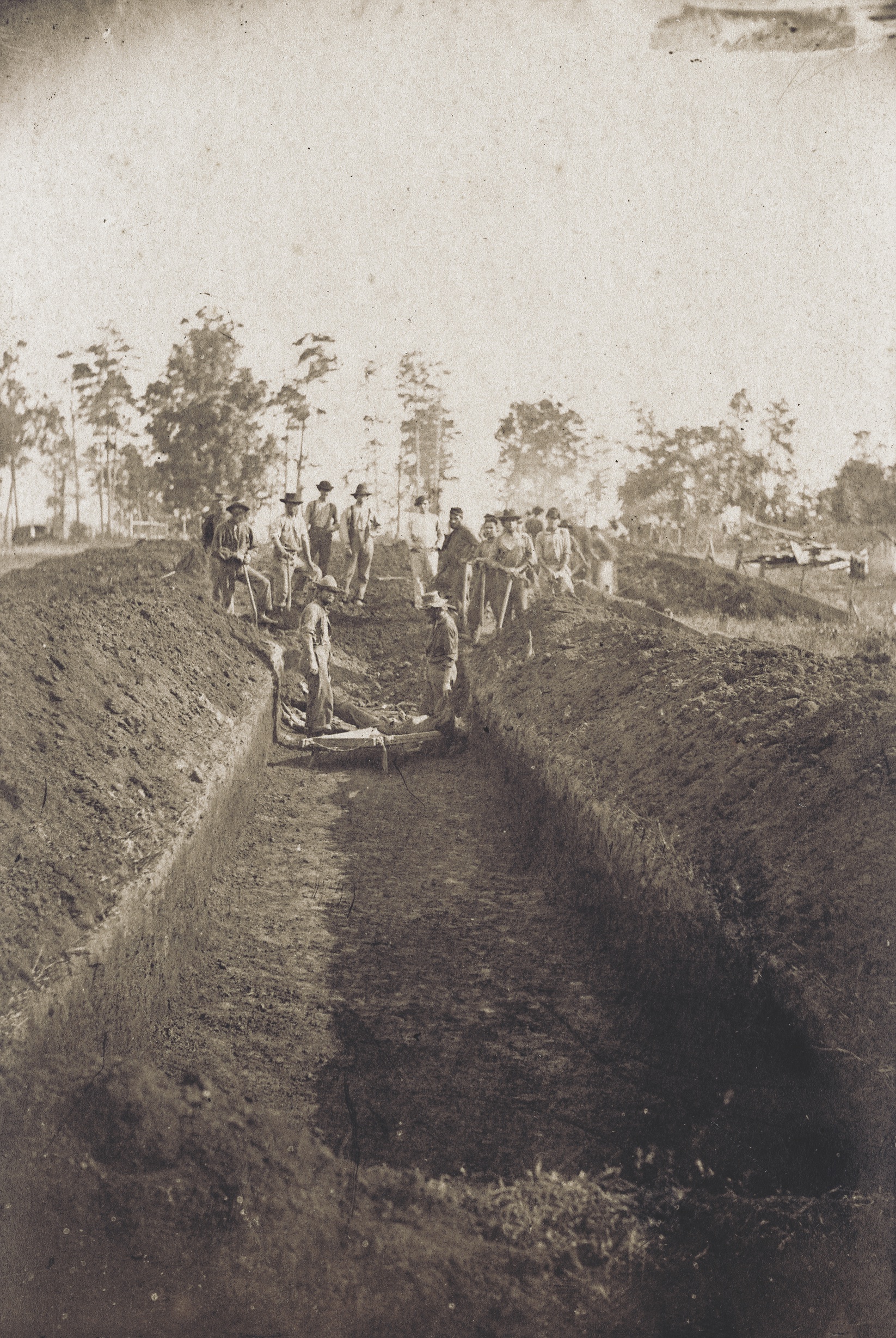
It is a distressing fact, but one of which I have found abundant proof in many conversations with the men so far brought back, that the prisoners very generally believe that they have been abandoned by our Government. This idea is sedulously inculcated by the rebel authorities. I am convinced that many a brave heart has succumbed under the cruel aspersion that the sympathies of the people are dead to their woes. Hunger, squalor, filth, nakedness and disease may be borne, but that hope deferred which results in heartsickness—that longing for home which superinduces mental depression, cannot long be survived. Nostalgia is the parent of physical ailments, and, under the terrible monotony and privations of the prison pens, it is more fatal than bullets on the field of battle. A very large proportion of these prisoners have been held as such for periods of from nine to sixteen months, and the exchange question between the two Governments as yet gives no promise of a speedy settlement. The rebels assure the captives that they are prepared to yield all the points at issue, and have long since announced the fact to the United States Government, whose only reason for non-acceptance is one of simple expediency, viz: that by resuming the exchanges thousands of rugged, strong men would be sent into the armies of the South from the prison camps of the North and no equivalent would be received in the broken down, emaciated wrecks of humanity that would be sent home from the pens at Andersonville, Columbus, Milan and Richmond. Is it a matter of marvel that under the influence of this monstrous belief, hundreds of the disheartened soldiers endeavor to escape the horrors of the prisons by enlisting in the rebel service? Such is the fact, and it behooves our Government to weigh it well. The exchanges are in abeyance on well-taken grounds, from which there can be no retraction without a sacrifice of national honor. But there are two sides to the question, and the national faith and honor are just as deeply plighted to the fifty thousand soldiers languishing and dying in captivity as it can possibly be in other quarters. Justice to the heroic men whom the fortune of war has placed in the hands of the enemy, demands that no effort should be relaxed to release them from a condition which will bring the majority of them to certain death during the fast approaching Winter. The resources of the North in men have scarcely been drawn upon as yet, in comparison with the resources of the South, and the question of expediency in releasing a few thousand Southern soldiers should not be entertained an instant, even if a draft in the Northern States were not able to put their equivalent in the field.
Having thus far written generalities, let me now come to particulars. Taking any single day of the four in which we have been receiving our men, I propose to give some description of the animating scene on the transfer of the prisoners from the rebel vessels to our own. As I have informed you in a former letter, the rendezvous for the exchanges is at Venus Point, on the Savannah River, a bend of the stream whence the spires and many of the houses of the City of Savannah are visible. Our boats are invariably the first at the rendezvous, anchored in mid-river awaiting the rebel vessels, whose tardiness proceeds from the fact that it is only at the proper tide certain obstructions of the channel above can be crossed.
Finally they appear over the low marshes, belching their turgid clouds of dense black smoke, and in half an hour their uncouth, grotesque, towering shapes are puffing and wheezing near us. Col. Mulford immediately goes in a yawl boat to the Gen. Beauregard, a small steamer used by Capt. [John P.] Hatch, the rebel agent, as the flagship of his transport squadron, and after a few moments’ consultation, during which the rolls of the prisoners are transferred, the two agents go together on board one of the floating objects laden with the released men, and she is at once laid alongside a neat Union vessel, and the poor fellows are transshipped. Those of them who are able to move without aid pass to the protection of the old flag first; then come those (alas! there are many of this class) who hobble on crutches, and last the few whose helplessness requires that they should be carried on stretchers. In all this operation the greatest formality is observed. A number of rebel civilians, with bands round their hats, labeled “Committee for the wounded,” whose position corresponds with our own Sanitary Commission, accompanying the boats from Savannah to attend on the sick, and assist in the transshipment, but seldom on either side is a word spoken except on the subject of the matter in hand. A different course is forbidden, and if on either side there happen to be a disposition to engage in conversation, watchful guards step up and ask that the conversation shall cease. It is no uncommon thing to see a man who has been so crippled by scrofula that crutches were necessary to his locomotion, under the influence of his ecstasy at again being free, spurn from him his artificial supports and walk, for a time, as erect and as instantaneously as he whom the Saviour miraculously cured by the healing waters of Bethesda.
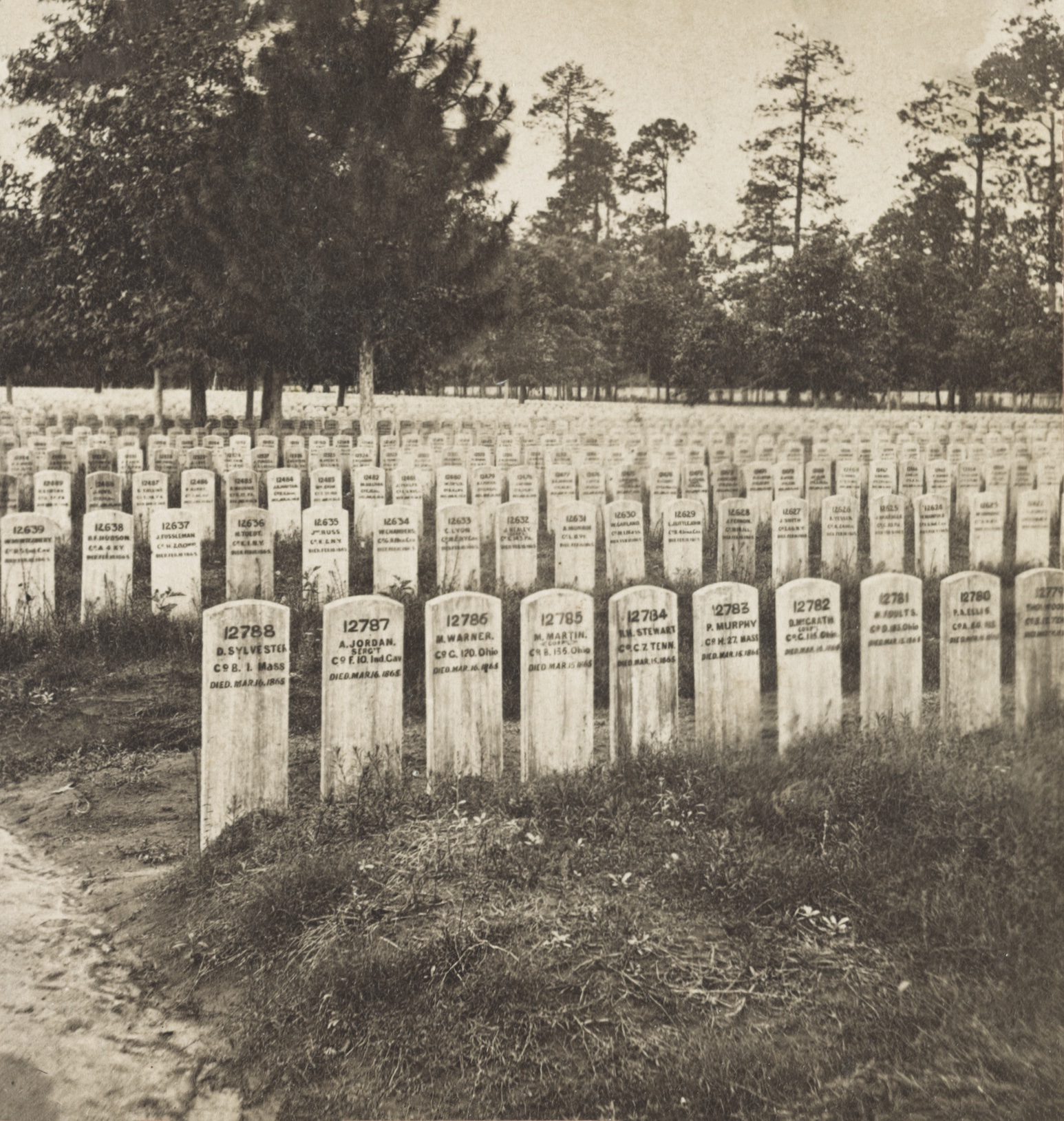
When the rebel boat moves off and the men are huddled together on the decks of our own vessels, all fully understand that the last link which bound them to rebeldom has been severed, then rises hearty shouting and cheering, which only can be given under these circumstances. There is the music of intense gratefulness in it. Three cheers and a tiger for the old flag; three more and a tiger for Col. Mulford; then comes a burst of song, most often the words being “Rally round the flag, boys, from near and from far, down with the traitor and up with the star,” the rebels still within hearing, probably gnashing their teeth at the pointed personal allusion, but everybody else feeling that the bad taste of the happy fellows is excusable, even though exhibited under the sacred folds of a flag of truce. Then vermin-infested rags, till now highly prized as the only cover for nakedness, are rudely torn off and flung into the water or cast with glee into the flaming furnaces of the steamers, and new clothes are issued, and a general cleaning-time inaugurated. But the bathing has long been needed, and scarcely comes soon enough. Many of the men, through illness or carelessness, are so begrimed with filth, that, were it not for the dead color of the blacked epidermis, they might be taken for the sons of Ham.
The steamer Eliza Hancox, one of the exchange fleet, has a spacious deck, affording room for dancing, and Terpsichore finds her votaries, even though they are tatterdemalions, who dance not ungracefully in their streaming rags. As soon as possible, barrels of hot coffee are prepared, and hams are cooked, and boxes of hard-bread opened, for the refreshment of these men, to whom decent food has been for a long time unknown. It is a touching sight to see them, each with his quart can, file by the steaming coffee barrels, and receive the refreshing draught whose taste has long been unfamiliar. It seems scarcely possible that men should feel such childish joy as they express in once more receiving this common stimulant. And then, the eager, hungry glare which their glassy eyes cast upon the chunks of ham as they clutch and devour their allowance with a wolf-like avidity! These facts can only be understood by the spectator in remembering that for months they have been deprived of a sufficient quantity of palatable food, and that the little they have received has been rarely cooked, because in a country abounding with fuel, and gloomy with immense pine forests, their jailors forbade them the poor privilege of adequate fires. At the prison-pen near Milan, Ga., for some weeks there has been no meal or flour given to the prisoners, and the sweet potatoes issued in lieu thereof have been eaten raw, because there was no opportunity of getting fuel for cooking purposes.
Such is the condi[tion] of the men whom we are now receiving out of chivalrous Dixie. These the sons, brothers, husbands and fathers of the North. Men reduced to living skeletons; men almost naked; shoeless men, shirtless men, hatless men; men with no other garment than an overcoat; men whose skins are blackened by dirt and hang on their protruding bones loosely as bark on a tree; men whose very presence is simply disgusting, exhaling an odor so fetid that it almost stops the breath of those unaccustomed to it, and causes an involuntary brushing of the garments if with them there is accidental contact. Imagine 25,000
of such wretched creatures penned together in a space scarcely large enough to hold them, and compare their condition with the most miserable condition that can be imagined. The suffering of the Revolutionary captives on the prison ships at Wallabout Bay will not stand the comparison, and the horrible sight in the Blackhole of Calcutta scarcely exceeds it in atrocity. Remember, too, that the men thus returned are the best specimens of the suffering. Only those are forwarded to us whom the rebel medical authorities decide to be strong enough to bear the fatigue of transportation. If those whose wretchedness I have vainly endeavored to portray, are the best specimens of our sick and wounded, is it not awful to contemplate what must be the woe of the remainder?
Look, now, at this record of the rebel surgeons. Here is damning proof of inhumanity, scarcely to be credited among a people professing Christianity in the nineteenth century. For the period of a month, through which these reports extend, there is a constant, monotonous complaint, often assuming the language of protest, against the treatment to which the sick were subjected. Men in the last stages of emaciation from chronic diarrhoea, received no nourishment whatever, and starved to death on the coarse rations which the stomach of a strong man would reject. Others, suffering from gangrene and ulcers, were compelled to fester in putridity without even sufficient water to cleanse their loathsome sores. Week after week the diseased and the dying were kept without shelter, and many of them without clothing, on the bare ground, exposed to a torrid sun by day and to heavy rains at all times, in total disregard of the earnest and almost despairing appeals of kind-hearted physicians for their relief. It is very easy to understand how much of this terrible wretchedness was unavoidable, particularly that part of it which proceeded from the scarcity of medicines, but it requires a very ingenious mind to palliate in any degree the heartlessness which allowed the sufferers to remain shelterless in a country where the materials for shelter are as abundant as in the South, and where thousands of willing hands from the prisoners in the stockade would have furnished all the labor. But why dwell on these matters? The shocking inhumanity of the rebel authorities will be patent to all who read these plain unvarnished reports.
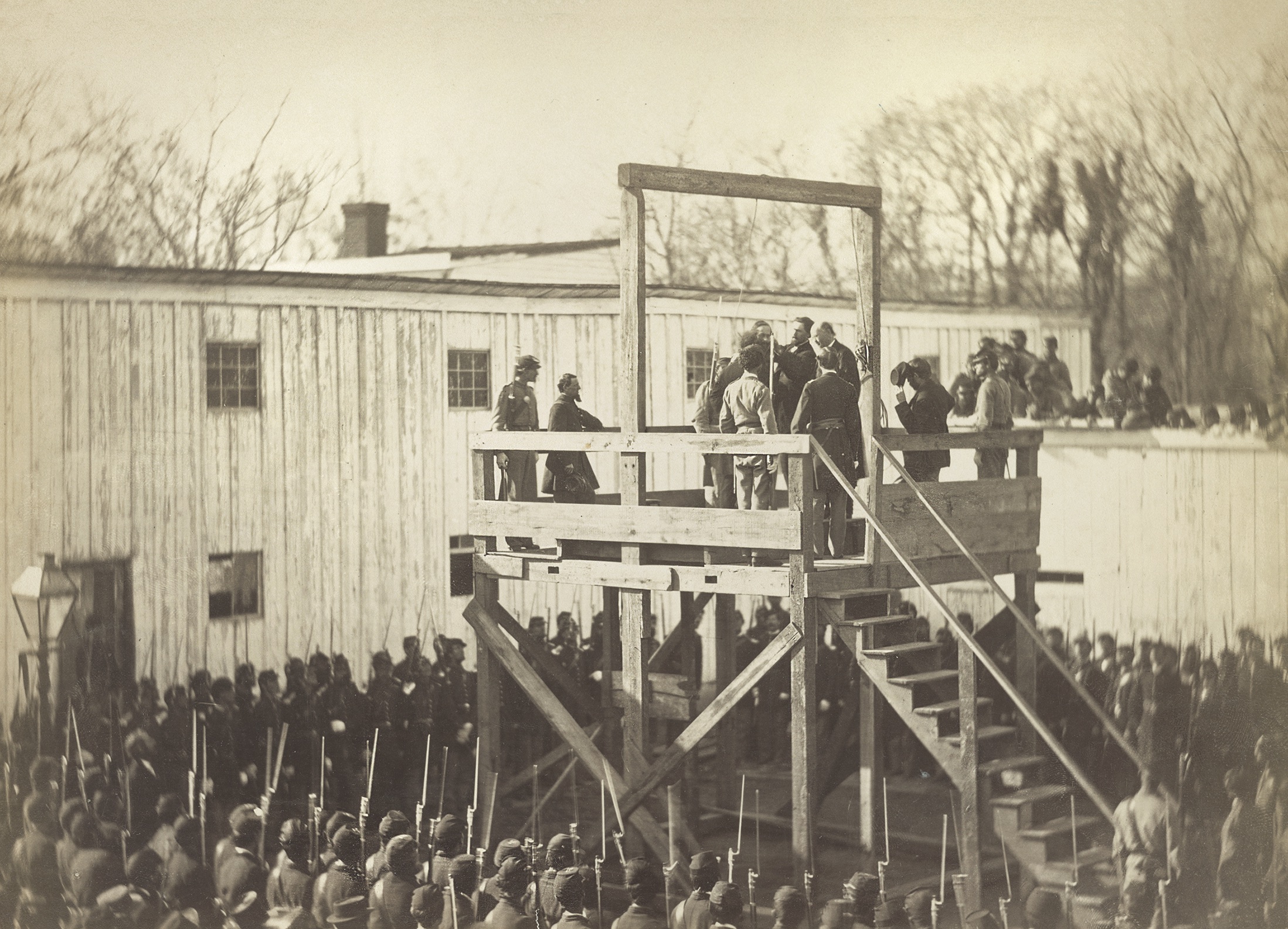
The stockade or pen in which the prisoners at Andersonville are confined, is an enclosure of fourteen acres, five of which were a morass. Here the men were without shelter, and in many instances almost naked, huddled together without room for exercise. During the hot Summer months there were scattered about in this pen an average of at least 500 prisoners, who were suffering from disease in almost every form incident to man, in a climate to which he is unaccustomed. Five acres of the surface of the ground were covered with human excrement, exhaling a morbific influence which would prove fatal even to the rice plantation laborer, accustomed from infancy to breathing the malarious atmosphere of his native savannahs. Constantly drenched by rains, receiving bad food, always poorly prepared and often raw, in many instances naked and laboring under a mental depression verging upon melancholy, feeling that their days were numbered, the prisoners were kept in their dreadful prison. Under these circumstances the mortality became frightful, and as a matter of defence from an epidemic, the rebel authorities were compelled to thin out the shambles early in September, by sending several thousand of the prisoners to a new stockade established at Savannah, where their sufferings were considerably alleviated. Subsequently these men on the breaking out of the yellow fever at Savannah were removed to another prison pen at Milan. Before the change from Andersonville was made eleven thousand victims had been buried, uncoffined, in the shallow trenches near the prison.
Of the cruelty of Capt. [Henry Wirz], the rebel officer having charge of the prison at Andersonville, all the prisoners speak in unmeasured terms. His vindictiveness is attributed to the fact that during one of the Union raids in Alabama his property was destroyed. It was a common thing for Capt. [Wirz] to place men in the chain-gang for no greater offence than attempting to escape, and in two instances the unfortunate fellows died while in their fetters. MHQ
—H. J. W.
[hr]
This article appears in the Spring 2021 issue (Vol. 33, No. 3) of MHQ—The Quarterly Journal of Military History with the headline: Classic Dispatches | ‘Our Prisoners’
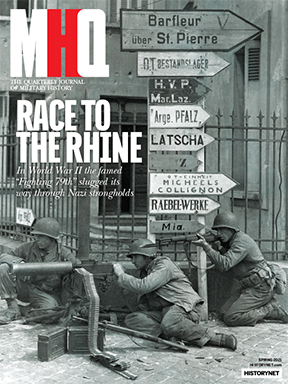
Want to have the lavishly illustrated, premium-quality print edition of MHQ delivered directly to you four times a year? Subscribe now at special savings!

